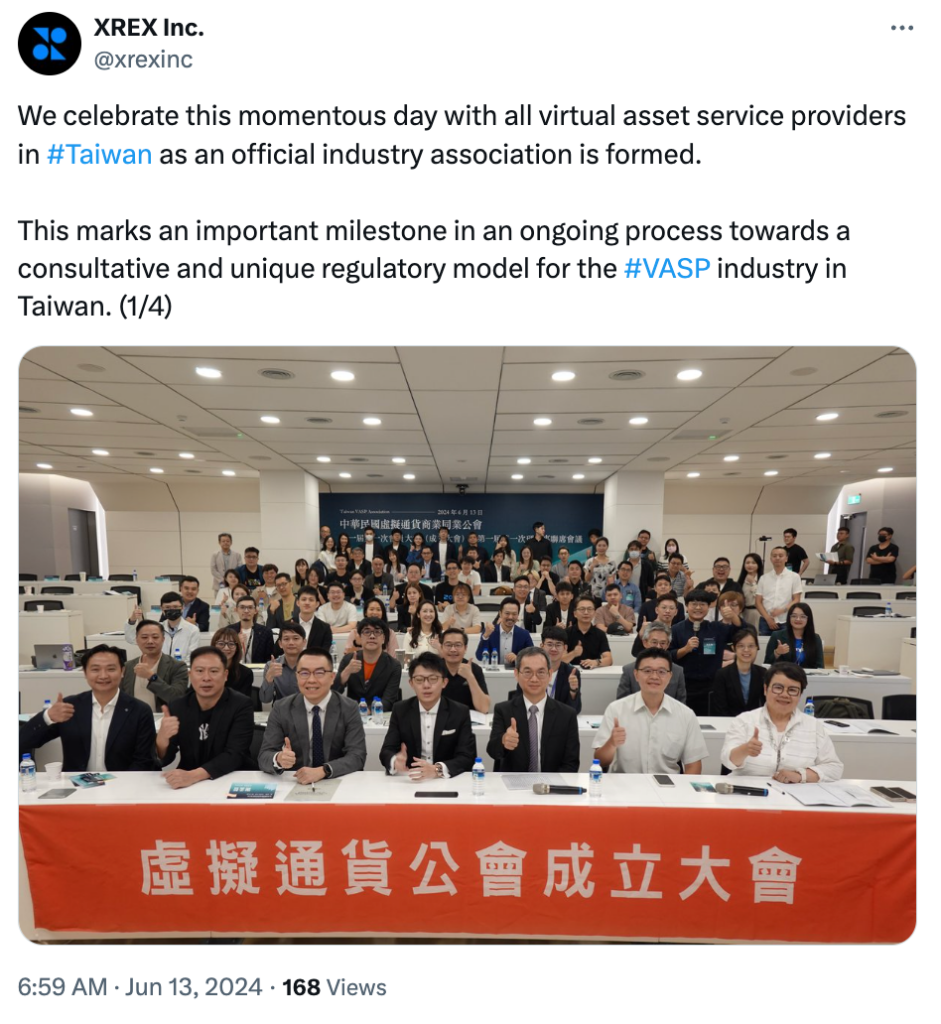Taiwan’s Justice Ministry proposed AML changes for crypto firms, prompting the formation of a self-regulatory VASP association to ensure compliance and combat fraud.
An association centered in Taiwan has welcomed several cryptocurrency businesses to create self-regulatory guidelines for the nation’s digital asset market.
On June 13, 24 cryptocurrency companies joined the Taiwan Virtual Asset Service Provider (VASP) Association as inaugural members, according to the XREX exchange. Winston Hsiao, chief revenue officer of XREX, will serve as vice chair of the association, which BitoPro founder and CEO Titan Cheng will chair. “Promoting and facilitating rigorous and fair regulations that help grow the blockchain finance industry globally,” the group stated, was its commitment.
As a member of the alliance, XREX declared, “[We will] cooperate with the government, the Ministry of Justice, and law enforcement agencies to jointly combat fraud and other criminal activities.” “To jointly establish an industrial joint defense platform and design international transfer rules that meet Taiwan’s needs (Travel Rule) standards, networks, and alliances, the industry will also contribute technology, industrial knowledge, and infrastructure. Additionally, the industry will create currency flow scanning and tracking technology consistent with Taiwan’s money laundering and fraud patterns.”

After representatives from Taiwan’s Justice Ministry suggested that the nation modify its Anti-Money Laundering (AML) laws for virtual asset service providers, the VASP association was established. Noncompliance could result in fines of up to $1.5 million or two years in prison under the proposed modifications. In addition, Taiwan’s Financial Supervisory Commission (FSC) declared that new digital asset rules will be implemented in September.
Hsiho Huang, an FSC director present at the Virtual Asset Service Provider Association announcement on June 13, stated, “The establishment of the association will bring more cooperation and consensus to the industry, promote compliance, standardization, and healthy development of the industry, ensure the safety, transparency, and stability of the industry, and enhance the protection of consumer rights.”



